Introduction to PCB Workshops
Printed Circuit Board (PCB) workshops and events are essential for professionals, students, and hobbyists interested in electronics and circuit design. These workshops provide hands-on experience and valuable knowledge about the latest technologies, techniques, and best practices in PCB design and manufacturing. Attending PCB workshops can help participants improve their skills, network with industry experts, and stay up-to-date with the latest trends in the field.
Benefits of Attending PCB Workshops
- Learn from experts in the field
- Gain hands-on experience with the latest tools and technologies
- Network with other professionals and enthusiasts
- Discover new trends and best practices in PCB design and manufacturing
- Enhance your skills and knowledge in electronics and circuit design
Types of PCB Workshops
There are various types of PCB workshops available, catering to different skill levels and areas of interest. Some of the most common types of PCB workshops include:
Introductory PCB Design Workshops
These workshops are designed for beginners who have little to no experience in PCB design. Participants learn the basics of PCB design, including:
- Schematic capture
- Component placement
- Routing
- Design rule checking (DRC)
- Gerber File Generation
Introductory workshops often use popular PCB design software such as KiCad, Eagle, or Altium Designer.
Advanced PCB Design Workshops
Advanced PCB design workshops are targeted at experienced designers who want to enhance their skills and learn about the latest technologies and techniques. Topics covered in advanced workshops may include:
- High-speed PCB design
- RF and Microwave PCB design
- Flexible and rigid-Flex PCB design
- PCB layout optimization
- Signal and power integrity analysis
- Electromagnetic compatibility (EMC) considerations
PCB Manufacturing Workshops
PCB manufacturing workshops focus on the processes and techniques involved in fabricating PCBs. Participants learn about:
- PCB materials and substrates
- Copper Clad lamination
- Photolithography and etching
- Drilling and plating
- Solder mask and silkscreen application
- Surface mount technology (SMT) and through-hole assembly
These workshops often include visits to PCB manufacturing facilities to observe the processes firsthand.
PCB Testing and Debugging Workshops
Testing and debugging workshops teach participants how to verify the functionality and reliability of their PCB designs. Topics covered may include:
- In-circuit testing (ICT)
- Flying probe testing
- Boundary scan testing
- Functional testing
- Thermal imaging and analysis
- Troubleshooting and debugging techniques
Participants learn how to use various testing equipment and software tools to identify and resolve issues in their PCB designs.
Popular PCB Workshop Providers
Several organizations and companies offer PCB workshops and events worldwide. Some of the most popular providers include:
- PCB West
- Annual conference and exhibition in the United States
- Offers technical sessions, tutorials, and workshops on PCB design and manufacturing
-
Website: PCB West
-
PCB2Day
- Online platform for PCB design education
- Provides self-paced courses, live webinars, and on-demand workshops
-
Website: PCB2Day
-
Fedevel Academy
- Offers online courses and in-person workshops on PCB design and electronics
- Covers topics such as KiCad, Altium Designer, and Raspberry Pi
-
Website: Fedevel Academy
-
EPTAC Corporation
- Provides training and certification in PCB design, manufacturing, and assembly
- Offers public and private workshops worldwide
-
Website: EPTAC Corporation
-
Eurocircuits
- European PCB manufacturer offering workshops and webinars
- Covers topics such as PCB design, DFM, and assembly
- Website: Eurocircuits

Choosing the Right PCB Workshop
When selecting a PCB workshop to attend, consider the following factors:
-
Skill level: Choose a workshop that matches your current knowledge and experience in PCB design and manufacturing.
-
Topics covered: Ensure that the workshop covers the specific areas you are interested in learning about, such as high-speed design, RF PCBs, or testing and debugging.
-
Workshop format: Decide whether you prefer an in-person workshop, online course, or a combination of both.
-
Duration and schedule: Consider the length of the workshop and whether it fits your schedule and availability.
-
Instructor expertise: Research the instructors’ backgrounds and experience to ensure they are knowledgeable and qualified to teach the topics covered.
-
Reviews and recommendations: Look for reviews and testimonials from previous participants to gauge the quality and effectiveness of the workshop.
Preparing for a PCB Workshop
To get the most out of a PCB workshop, it’s essential to prepare in advance. Here are some tips to help you prepare:
-
Familiarize yourself with the workshop topics and agenda to understand what will be covered.
-
Install and set up any required software or tools before the workshop begins.
-
Review the prerequisites and ensure you have the necessary background knowledge and skills.
-
Prepare questions and topics you’d like to discuss with the instructors and other participants.
-
Bring a notebook, pen, and any other materials you may need to take notes and complete exercises.
-
Arrive early to the workshop venue or log in to the online platform ahead of time to avoid any last-minute issues.
Networking at PCB Workshops
PCB workshops and events provide excellent opportunities to network with other professionals and enthusiasts in the field. Networking can help you:
- Learn about new technologies and trends
- Discover job opportunities and collaborations
- Share knowledge and experiences with others
- Build lasting relationships with peers and mentors
To make the most of networking opportunities at PCB workshops:
-
Introduce yourself to other participants and engage in conversations during breaks and social events.
-
Join group discussions and participate in Q&A sessions to share your insights and learn from others.
-
Exchange contact information with people you meet and follow up after the workshop to maintain connections.
-
Attend social events and activities organized as part of the workshop to meet people in a more relaxed setting.
-
Join online communities and forums related to the workshop topics to continue learning and networking after the event.
Applying What You Learn
After attending a PCB workshop, it’s crucial to apply what you’ve learned to your own projects and work. Here are some ways to put your newfound knowledge into practice:
-
Incorporate the techniques and best practices you learned into your PCB designs.
-
Experiment with new tools and technologies introduced during the workshop.
-
Collaborate with other workshop participants on projects or ideas that emerged during the event.
-
Share your learnings with colleagues and peers to spread knowledge and foster a culture of continuous improvement.
-
Seek feedback on your PCB designs from instructors or experienced participants you met at the workshop.
-
Continue learning by attending more advanced workshops or exploring additional resources recommended during the event.
Frequently Asked Questions (FAQ)
-
Are PCB workshops suitable for beginners?
Yes, there are many introductory PCB workshops designed specifically for beginners with little to no experience in PCB design. These workshops cover the basics and provide hands-on experience to help participants get started in the field. -
How much do PCB workshops typically cost?
The cost of PCB workshops varies depending on the provider, duration, format, and location. Online workshops and courses tend to be more affordable than in-person events. Prices can range from a few hundred to several thousand dollars, depending on the level of expertise and the depth of the content covered. -
Do I need to have my own software and tools to participate in a PCB workshop?
It depends on the specific workshop and provider. Some workshops may require participants to have their own software and tools, while others may provide access to the necessary resources during the event. Be sure to check the workshop requirements and prerequisites before registering. -
Can I attend a PCB workshop remotely?
Yes, many PCB workshops are now offered online, allowing participants to attend remotely from anywhere in the world. Online workshops may be conducted through live webinars, self-paced courses, or a combination of both. -
Are there any certifications or qualifications associated with PCB workshops?
Some PCB workshop providers may offer certifications or certificates of completion to participants who successfully finish the course or pass an assessment. These certifications can demonstrate your knowledge and skills to potential employers or clients. However, not all workshops offer formal certifications, so it’s essential to check with the provider beforehand.
Conclusion
PCB workshops and events are invaluable resources for anyone interested in electronics and circuit design. By attending these workshops, you can learn from experts, gain hands-on experience, network with other professionals, and stay up-to-date with the latest trends and technologies in the field. When choosing a PCB workshop, consider your skill level, the topics covered, the workshop format, and the instructor’s expertise. Prepare in advance, actively participate in the workshop, and apply what you learn to your own projects and work. With the knowledge and skills gained from PCB workshops, you can enhance your career, improve your designs, and contribute to the advancement of the electronics industry.
| Provider | Workshop Type | Duration | Cost Range |
|---|---|---|---|
| PCB West | In-person, Conference | 3-5 days | $1,000-$3,000 |
| PCB2Day | Online, Self-paced | Varies | $100-$500 |
| Fedevel Academy | Online, In-person | 1-5 days | $500-$2,000 |
| EPTAC Corporation | In-person, Public, Private | 1-5 days | $500-$3,000 |
| Eurocircuits | Online, Webinars | 1-2 hours | Free-$200 |
By investing in your education through PCB workshops and events, you can unlock new opportunities, solve complex challenges, and contribute to the creation of innovative electronic products that shape our world. Embrace the power of continuous learning and stay at the forefront of the ever-evolving PCB industry.
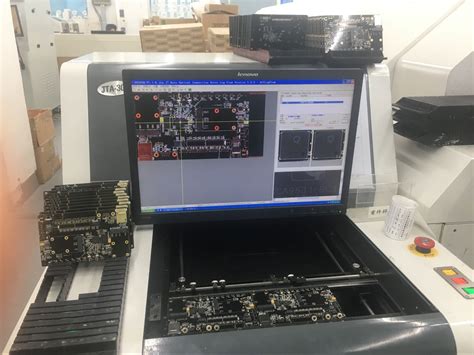
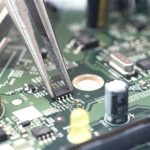
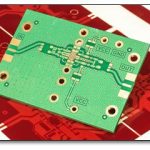
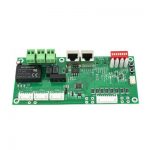
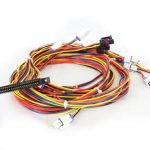
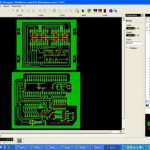
Leave a Reply